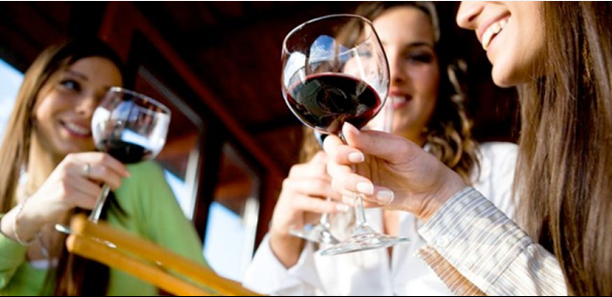Date£º
2014-10-31 11:34 Source£º
FoxNews.com Author:
Stephanie Miskew Translator:
From who they advise from to how they buy it, millennials are changing the wine industry.

The 62 million millennials in America who are old enough to drink are rapidly changing the way wine is marketed. While baby boomers still lead in wine consumption, millennials -people born in the early 1980s to 2000- are the fastest growing demographic, and producers are taking note of their purchasing power.
Here are five ways millennials are influencing the wine world:
Bang for the Buck
Millennials, whose budgets are more limited than boomers' don't show off by bringing the most expensive bottle of wine to a party. They choose bottles in the $10-$12 range for everyday consumption and rarely go higher than $20 for a special occasion. Rather than splurging, they rely on the resources at hand (a producer website or a wine shop consultant) to select value-focused wines crafted from unique grape varietals in reputable regions.
The Sweet Spot
Millennials prefer wines with less tannin and more sugar and are developing a taste for sparkling sweet wines, including Moscato d’Asti, prosecco and even sangria. Moscato leads the pack; sales of Italian imports were up almost 27 percent last year, according to Nielsen ratings. Now producers from other regions are adding sweet, sparkling wines to their lineups. Moet Hennessey just announced Delice, a Napa-sourced, semisweet, methode Champenoise sparkler, an addition to its Chandon brand that will be marketed to millennials in the U.S.
Surfing for Wine
Thanks to the Internet, wine lovers no longer have to take a costly trip to California or France to learn how wine is made. They can simply watch a YouTube video or connect with a winemaker on Twitter. Apps such as Delectable and Vivino allow users to learn about specific wines and keep track of the ones they like, and they can buy wines from online shops such as The Wine Atelier and Naked Wines. Producers know it's important to have a social media presence if they hope to grab the attention (and dollars) of millennials, who are also likely to share information about a wine or winemaker they like.
Knowledge is power
Whether it's the grape variety or the compelling story behind a winemaker or region, millennials want to learn, so marketers are providing more information about exactly what's in the bottle. Millennials also love to share information, which makes them an even more appealing demographic.
Critics, schmitics
Millennials are adventurous. They're more likely to rely on the opinion of a friend or peer rather than a critic they're never met, and they're willing to do the legwork to decide whether they like a particular wine. Social media also allow millennials to share online conversations about wines.